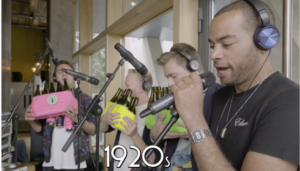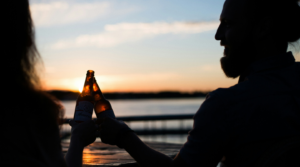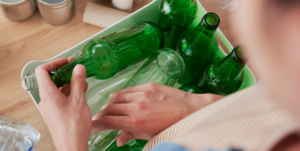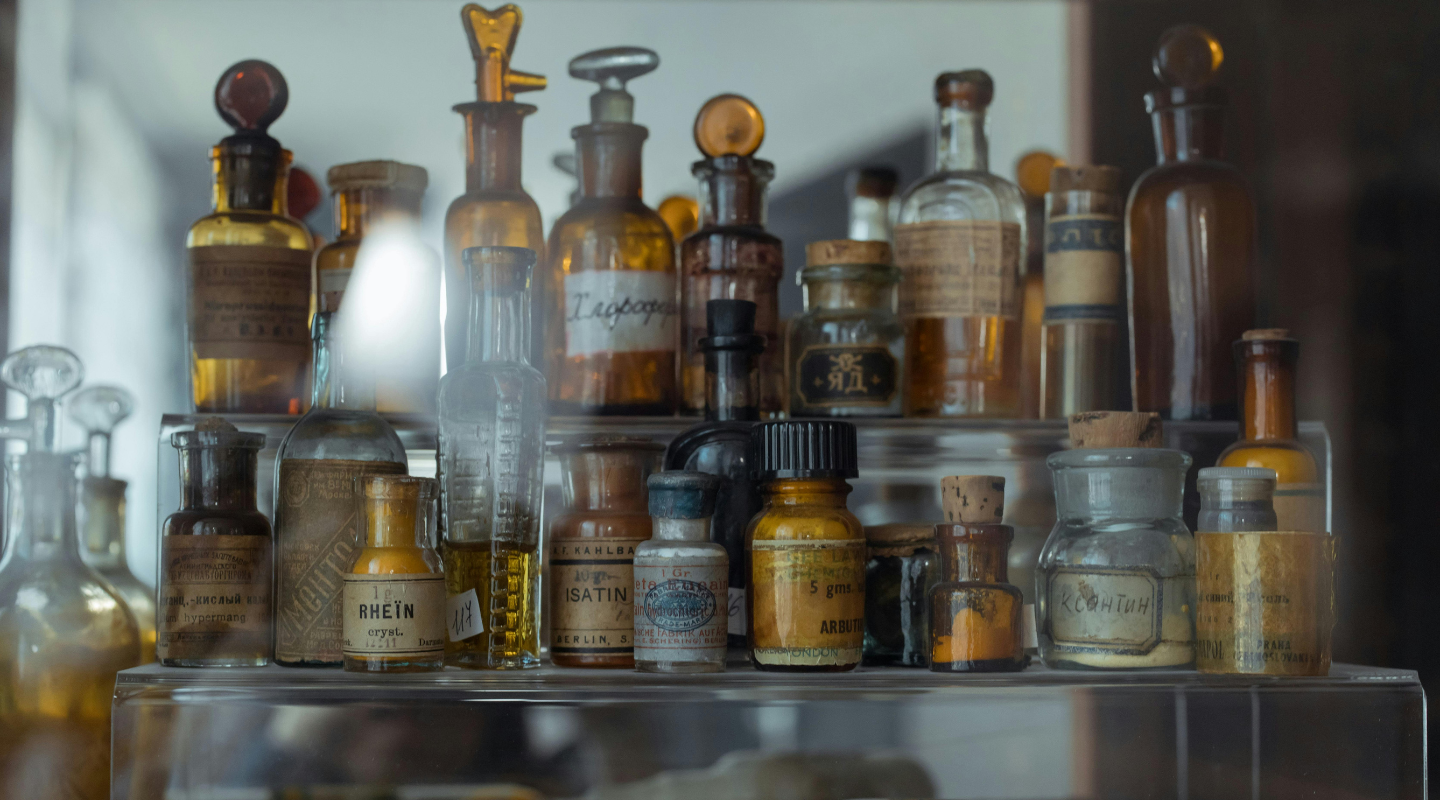Glass is all around us. From the buildings we work in, to fabulous works of art, to the containers we eat and drink out of – glass touches every part of our lives. Ancient Egyptians began making glass about 3000 years ago and modern life, as we know it, would be next to impossible without glass.
Glass and food has had a particularly long and fruitful relationship.
Did you know?
Glass is a pure and natural product with an added bonus; there is no migration between glass and its contents.
Ingredients such as flavorings and vitamins are therefore preserved for a long time without any change in flavour.
Glass can also be microwaved, sterilized and pasteurized without having to worry about unwanted chemicals or flavors migrating into the product; but do we even know how this remarkable substance is made?

From the Ground to Your Dining Room:
Follow along to learn about the fiery beginning and ending of glass.
It Begins on the Beach
Imagine a mile long beach. The sun is shining brightly, the waves are crashing on the shoreline and you look down at your feet as you sink your toes deep into the cool, damp sand.
Sand – or silica – is the first ingredient in the surprisingly simple recipe for glass.
The Egyptians, who were very familiar with sand, created the first glass bottles in 1500 BC to help preserve their perfumes, cosmetics and precious essences. The next ingredient can also be found on everyone’s favorite German treat – the pretzel. Soda ash has a variety of different uses in food production either as an anti-caking agent, helping baked goods rise, or to help control the acidity of some foods. Last, but not least in the recipe is limestone. Though people may be more familiar with this ingredient as a building material, limestone has a very important function in the glass recipe. Without limestone, the glass would be too brittle and prone to cracking and breaking.
In The Heart of the Volcano
Now that the three ingredients have been gathered, it’s time for some heat! Combining the sand, soda ash, and limestone, glass manufacturers melt the ingredients together in a furnace at 1600 ˚C. To help put it into perspective – a glass furnace and a jet engine run at the same temperature.
Prehistoric man actually first discovered glass because of sudden volcanic eruptions followed by rapid cooling, or by lightning strikes that formed a crude type of glass known as obsidian.
These ingredients are heated until it become a glowing, molten semi-liquid, which is then fed into a machine that stretches the cooling glass into short lengths called ‘gobs’.
Taking Shape
While the glass is still malleable, glass manufacturers or artists have a small window in which to craft their desired shape. Large-scale operations will take the ‘gobs’ and put them into molds where a plunger is pushed down into the liquid glass. Air is then blown into the resulting hole to push the glass into the shape of the mold; thus forming a glass bottle.
Before modern manufacturing, a glass-maker would use a long metal tube called a ‘blowing iron’ and use special tools and their own lung-power to push and shape into whatever shape they wanted. Finally, the newly formed glass objects pass through a machine called a ‘lehr’ which reheats and gradually cools them to make sure the glass is strong and durable. Each glass container is checked to make sure it’s in tip-top shape before it’s used; and any damaged bottles and jars are put back into the furnace to start the process all over again.
Talk about an incredible journey!

About Friends of Glass
Friends of Glass started in 2008 as an awareness campaign for glass. It was created by FEVE, the European Container Glass Federation, an international not-for-profit association representing glass packaging for food and drink, flacons for perfumery, pharmacy and cosmetics and glass tableware makers. Friends of Glass unites a community of people from different countries in Europe and beyond who are convinced that glass is an ideal packaging material because of its unique environmental, economic and family-friendly benefits. Individuals, national organisations, agencies and companies that believe in the sustainability credentials of glass are also proud members of the community.
Glass is good for you and the environment. Your choice makes a difference – be safe, be healthy, be smart. Join the community, follow www.friendsofglass.com and become a Friend of Glass yourself.




